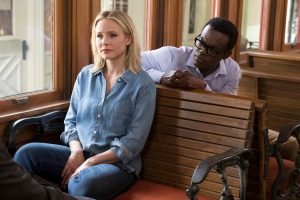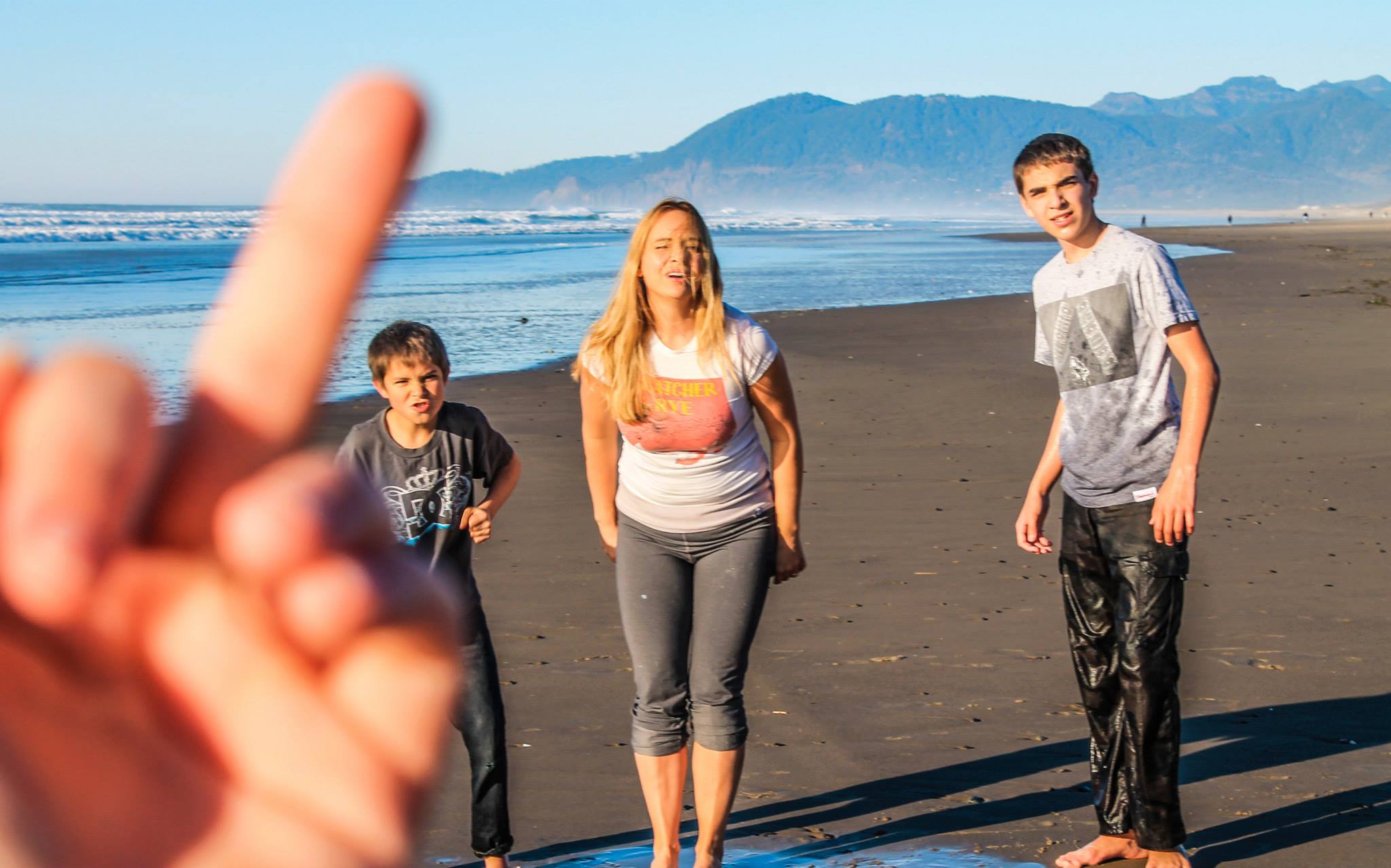
By Bex Peterson, Editor-in-Chief
As the title might suggest, I’ve been marathoning The Good Place for the past few weeks.
If you thought I was going to say that the title suggests I’ve been marathoning Scanlon for the past few weeks, congratulations on paying attention in ethics class!
(And here I’ve got to send a shout out to the fantastic Dr. Kira Tomsons of the Douglas College Philosophy and Humanities department, with whom I took as many philosophy classes as I could cram into my schedule. I miss the classes, but I can’t say I miss reading Hume or Kant.)
The Good Place poses some interesting questions about what it really means to be a “good person,” a topic I’ve always found fascinatingly dodgy. There are some classic questions about goodness that are never really going to be solved to anybody’s satisfaction: Does an action that benefits others still count as “good” if it was done with poor intentions? Is there a set of universal morals we can all agree on? Can we decide, unilaterally, that putting pineapple on pizza is ethically indefensible?
I used to think “good” and “bad” people didn’t exist, and I still mostly believe that—with some exceptions. I think there are some people where we can put aside the philosophy and thought experiments and just straight up accept that if you do enough evil, you can be categorized as being evil. I think what it really comes down to is that for the most part people aren’t inherently bad or inherently good. Good is a choice, and in some cases, a perspective. I think the moment you start thinking of yourself as an inherently good person is the moment you stop trying to be better, and start justifying personal behaviours that could be harming others.
Utilitarianism, virtue ethics, natural law, categorical imperative, justice, prima facie duties… these are all theoretical systems for determining what is “right” and what is “wrong”, “moral” and “immoral”, “good” and “bad.” I believe it’s important to ask ourselves what metric we’re using to make these judgments, and I know my metric has grown and shifted and changed many, many times throughout my life.
Getting back to The Good Place though, the character of Chidi Anagonye provides an extremely relatable cautionary tale. The endless questioning of his own morals and inability to choose any kind of definitive method of ethical reasoning often leaves him paralyzed with doubt, doubt that winds up doing him and others far more harm than good.
You don’t have to be a moral philosopher to do good things. I think right now, more than anything, what we owe one another—and to ourselves—is to try to make the world a better, kinder place.
(We can start by abolishing the practice of ruining perfectly good pizza with pineapple. Just saying.)
Until next issue,
Bex Peterson


